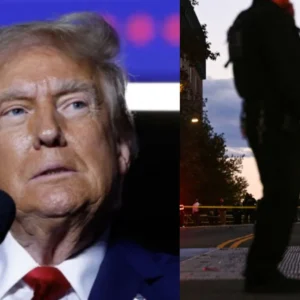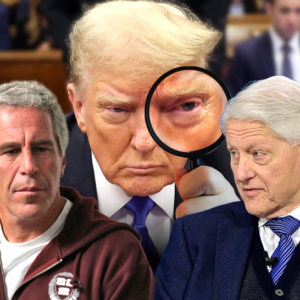The U.S. Supreme Court has handed a major defeat to California’s climate radicals, and even one liberal justice joined the conservative wing to make it happen.
In a 7-2 ruling, the court cleared the way for the state’s energy producers to move forward with their lawsuit against the U.S. Environmental Protection Agency, targeting California’s extreme green energy mandates. At the heart of the case is the state’s requirement that electric vehicles dominate the market by 2035, part of Gov. Gavin Newsom’s plan to force California into “carbon neutrality.”
Justice Brett Kavanaugh, writing for the majority, made it clear these mandates are not just heavy-handed but potentially illegal.
“The government generally may not target a business or industry through stringent and allegedly unlawful regulation, and then evade the resulting lawsuits by claiming that the targets of its regulation should be locked out of court as unaffected bystanders,” Kavanaugh wrote. “In light of this Court’s precedents and the evidence before the Court of Appeals, the fuel producers established Article III standing to challenge EPA’s approval of the California regulations.”
Kavanaugh also pointed out that the EPA has shifted its own legal arguments over time, a fact that did not help their case.
“EPA has repeatedly altered its legal position on whether the Clean Air Act authorizes California regulations targeting greenhouse gas emissions from new motor vehicles,” he noted.
This ruling comes on the heels of President Donald Trump’s decisive action earlier this month, when he signed three resolutions wiping out key parts of California’s aggressive green agenda. The Trump administration’s move was a massive blow to Newsom, a likely 2028 presidential contender, and his push to transform California into the most “progressive” climate state in the country.
“This case involves California’s 2012 request for EPA approval of new California regulations,” Kavanaugh explained. “As relevant here, those regulations generally require automakers (i) to limit average greenhouse gas emissions across their fleets of new motor vehicles sold in the State and (ii) to manufacture a certain percentage of electric vehicles as part of their vehicle fleets.”
Chet Thompson, president and CEO of American Fuel & Petrochemical Manufacturers, the group behind the lawsuit, hailed the ruling as a major victory.
“The Supreme Court put to rest any question about whether fuel manufacturers have a right to challenge unlawful electric vehicle mandates,” Thompson told the Daily Caller. “California’s EV mandates are unlawful and bad for our country. Congress did not give California special authority to regulate greenhouse gases, mandate electric vehicles or ban new gas car sales, all of which the state has attempted to do through its intentional misreading of statute.”
This is the second time Newsom has been defeated at the Supreme Court.
The U.S. Supreme Court sided with Immigration and Customs Enforcement’s ability to use a slew of methods to identify illegal aliens in the country.
In the ruling, the high court eliminated limits that kept the agency from raiding homes in the Los Angeles region for immigration-related reasons based on broad criteria like speaking Spanish or meeting at places where day laborers typically gather.
In their ruling, the justices, who were reportedly split 6-3 along ideological lines, placed on hold a federal district judge’s order limiting what critics dubbed “roving” sweeps by ICE agents.
The judge said that the practices were probably unconstitutional, claiming agents were using stereotypes to stop people at car washes, bus stops, and Home Depot parking lots.
The majority of the high court did not explain why they agreed to the Trump administration’s emergency petition to stop the district judge’s ruling.
However, Justice Brett Kavanaugh wrote separately that it is appropriate to conduct brief interviews with individuals who meet several “common sense” criteria for being in the country illegally, including those who work in day labor or construction and do not speak English well or at all.
In their dissent, the three liberal justices – Elena Kagan, Sonia Sotomayor, and Ketanji Brown Jackson- wrote, “We should not have to live in a country where the Government can seize anyone who looks Latino, speaks Spanish, and appears to work a low-wage job. Rather than stand idly by while our constitutional freedoms are lost, I dissent.”





